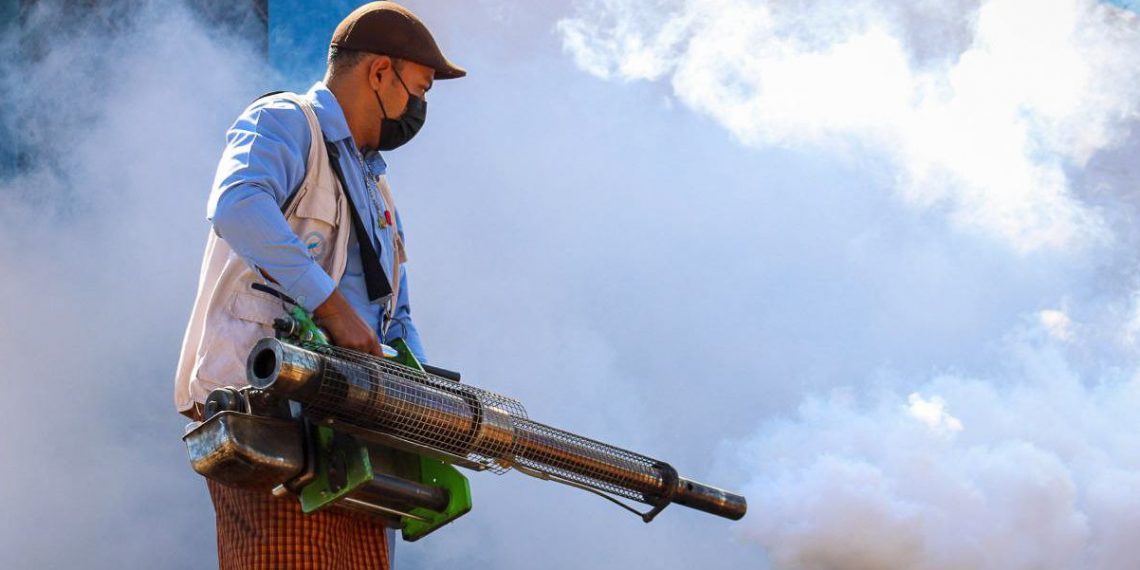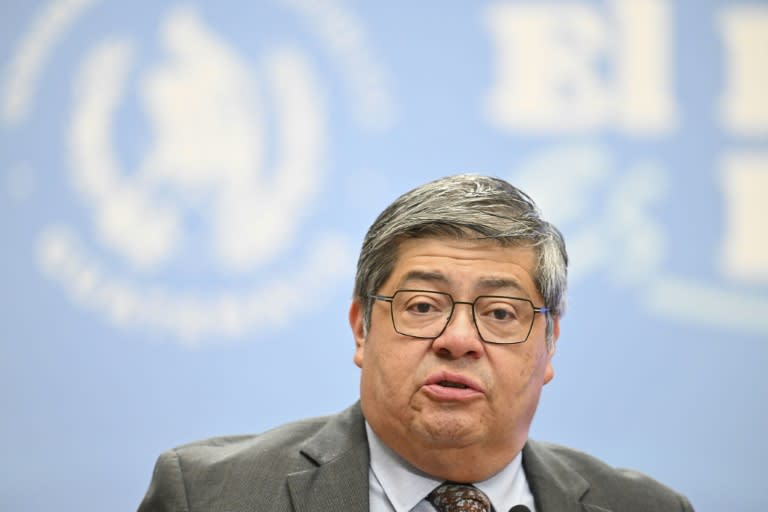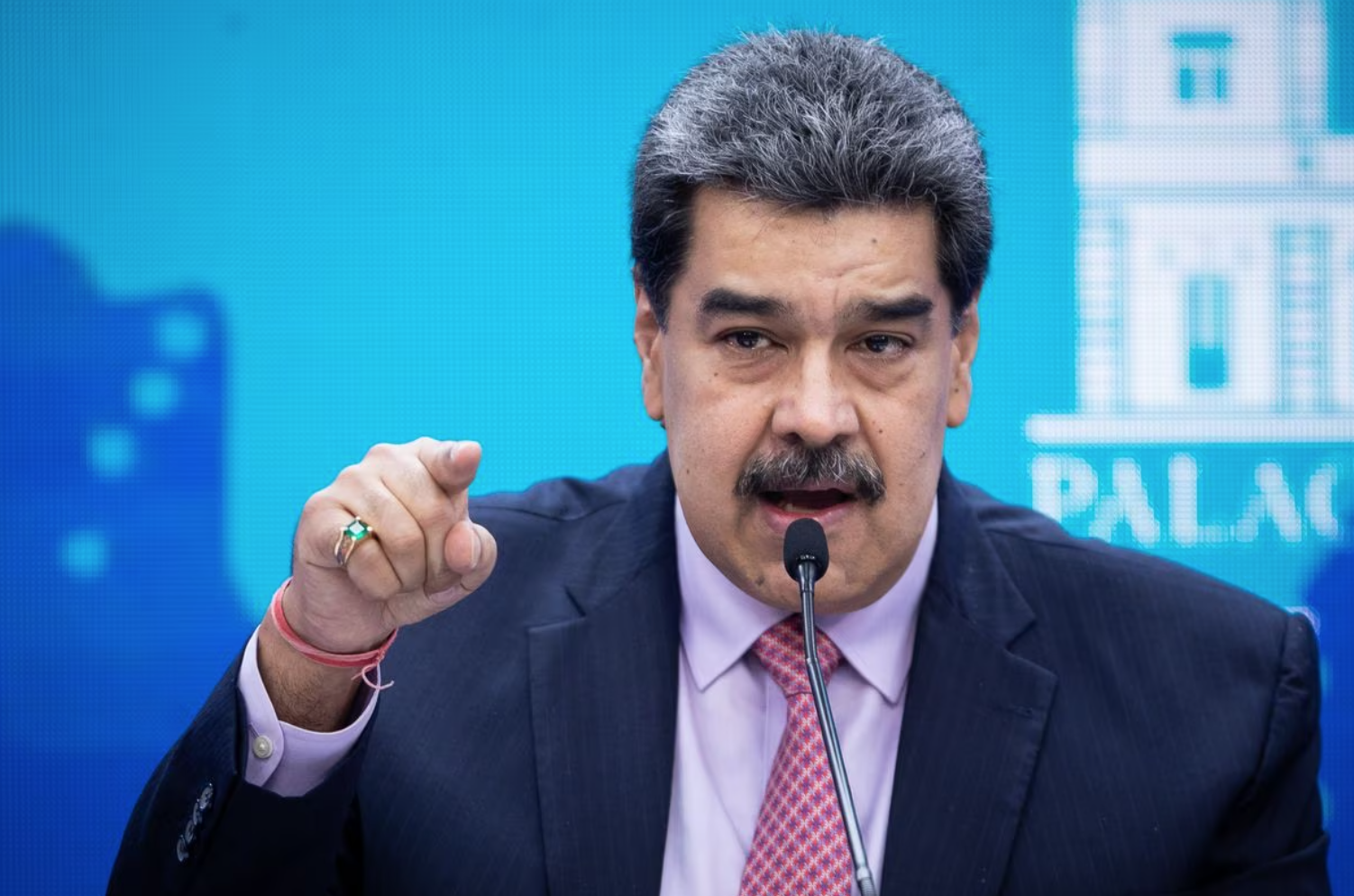Central America
El Salvador remains the only malaria-free country in Central America

June 5 |
The eradication of malaria, a mosquito-borne disease, gave El Salvador the recognition and certification by the World Health Organization as a “Malaria-free country”, becoming the only Central American nation to obtain this title.
The work developed by the Government through the Ministry of Health (Minsal) has generated the conditions for the country to remain free of cases of the disease and to prevent its reappearance.
“El Salvador is the first country in Central America with the Malaria Free Certification. With satisfaction, we can say that all this effort has allowed us to save lives”, highlighted the Minsal as one of the health achievements of the four years of President Nayib Bukele’s government.
Malaria is a potentially fatal disease caused by parasites transmitted to people through the bites of infected mosquitoes. Symptoms of the disease can include fever, vomiting and/or headache.
“El Salvador is the third country to achieve malaria-free certification in the Region of the Americas in recent years, after Argentina in 2019 and Paraguay in 2018. Seven countries in the Region obtained the certification between the years 1962 and 1973. Globally, a total of 38 countries and territories have achieved this goal. Eighteen countries, including one territory, in the Region of the Americas are currently at risk of malaria. Paraguay, Argentina and El Salvador were certified malaria-free by WHO in 2018, 2019 and 2021, respectively,” says the Pan American Health Organization (PAHO) as key data against the disease.
Similarly, the Minsal continues with different antivectorial actions to prevent other arboviruses such as dengue, zika and chikungunya through the intervention of homes with fumigation and abatization.
The search for and elimination of breeding sites, and health promotion are part of the actions that have allowed dengue to remain in the success zone of the endemic corridor, according to the epidemiological bulletin of the Minsal.
“We continue to carry out spraying campaigns, for the elimination of the mosquito that transmits dengue, zika and chikungunya. Let’s take care of ourselves, let’s avoid dengue!”, stated the Health portfolio.
Central America
Guatemalan police officer killed in mob riots over baby kidnapping

A police officer was killed during riots provoked by an enraged mob in a Guatemalan town following the kidnapping of a baby, the government reported on Wednesday.
The incidents began on Tuesday night and continued into the early hours of Wednesday in the town of San Vicente Pacaya, about 25 km south of the capital, according to Minister of the Interior Francisco Jiménez.
“There was an incident in San Vicente Pacaya where, unfortunately, a police officer died after being struck in the head with a stone. He passed away this morning,” Jiménez said in a press conference.
He explained that the unrest erupted following the arrest of two suspects in connection with the kidnapping of “a baby just a few months old,” including a woman with a criminal record.
Sports
Venezuela investigates 18 baseball players seeking asylum in Spain

The Venezuelan government announced on Wednesday that it is investigating the case of 18 baseball players who are “under the supervision of Spanish authorities” after seeking protection.
In a statement, Venezuelan authorities said they are working to determine whether this case involves “a possible human trafficking scheme,” though they have not provided any evidence of such a crime.
The Venezuelan government emphasized its commitment to protecting the country’s athletes while also denouncing the use of international legal frameworks by certain governments allegedly seeking to discredit the administration.
CNN reached out to Spain’s National Police for a response to Venezuela’s claims. According to Spanish authorities, the 18 young athletes—including two minors—arrived in Spain to participate in a series of matches but had already planned to apply for asylum. Authorities confirmed on Tuesday that they had begun interviewing the players to process their international protection requests.
The team’s coach addressed the situation in a TikTok video, refuting local media reports that he had abandoned the athletes. He asserted that the players chose to remain in Barcelona to secure the necessary permits to sign with other teams and that their decision was unrelated to any political motivations.
Sports
Filipe Luis debuts as coach in Copa Libertadores with Flamengo

A two-time Copa Libertadores champion with Flamengo during his playing days, Filipe Luis will make his managerial debut in the tournament this Thursday when the popular Rio de Janeiro club faces Venezuela’s Deportivo Táchira.
Placed in Group C alongside Táchira, Liga de Quito, and Argentina’s Central Córdoba, Flamengo starts as one of the favorites—a major challenge for the 39-year-old former player.
His early coaching career has been off to a strong start.
After retiring in 2023, Filipe Luis took over as Flamengo’s head coach on September 30. Just 41 days later, he won his first title, the Copa do Brasil. The year 2025 has already brought two more trophies: the Supercopa do Brasil, where Flamengo defeated Botafogo—current Libertadores and Brasileirão champions—3-1, and the Campeonato Carioca.
At 8:30 PM local time (00:30 GMT Friday), Flamengo under Filipe Luis will make its international debut at Estadio Pueblo Nuevo in San Cristóbal. Although Gerson, Uruguayan Giorgian de Arrascaeta, and Ecuadorian Gonzalo Plata are unavailable, the squad still boasts attacking firepower with Bruno Henrique and Everton.
-

 International5 days ago
International5 days agoSon of journalist José Rubén Zamora condemns father’s return to prison as “illegal”
-

 Central America2 days ago
Central America2 days agoU.S. Homeland Security Secretary urges Mexico to strengthen Guatemala border
-

 International5 days ago
International5 days agoMiyazaki’s style goes viral with AI but at what cost?
-

 Central America4 days ago
Central America4 days agoPanama police clarifies that Interpol alert for Martinelli is still pending
-

 International2 days ago
International2 days agoTrump urges Putin to reach peace deal
-

 Central America2 days ago
Central America2 days agoPanama grants Martinelli 72-hour extension to travel to Nicaragua
-

 International19 hours ago
International19 hours agoParaguay summons Brazilian ambassador over Itaipú espionage scandal
-

 International4 days ago
International4 days agoDeportation flight lands in Venezuela; government denies criminal gang links
-

 Central America17 hours ago
Central America17 hours agoGuatemalan police officer killed in mob riots over baby kidnapping
-

 Sports20 hours ago
Sports20 hours agoFilipe Luis debuts as coach in Copa Libertadores with Flamengo
-

 International20 hours ago
International20 hours agoMilei vows to make Argentina so strong that Falkland Islanders “choose” to join
-

 International19 hours ago
International19 hours agoElon Musk to step down as government advisor, per Trump insiders
-

 Sports19 hours ago
Sports19 hours agoVenezuela investigates 18 baseball players seeking asylum in Spain
-

 International20 hours ago
International20 hours agoICE agent’s arrest of suspect sparks controversy in Boston
-

 International20 hours ago
International20 hours agoÓscar Arias: Trump’s trade policies are a step backward















